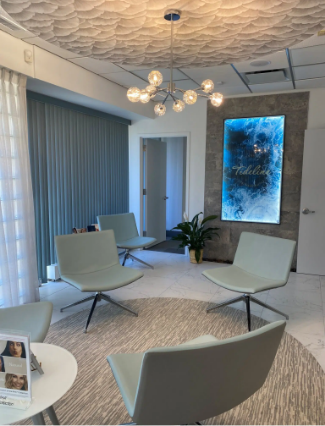
Fecal incontinence, though often shrouded in embarrassment and silence, is a reality faced by many individuals across age and gender spectrums. In this blog, we aim to shed light on this common condition while emphasizing the importance of seeking professional help when needed. Rest assured, you are not alone in experiencing this issue, and there are effective solutions available.
The Unspoken Struggle
One of the primary reasons that fecal incontinence often goes unaddressed is the profound embarrassment it can trigger. Many individuals silently bear this burden, unaware that they are not alone, and that help is available. It’s crucial to understand that occasional loss of small amounts of stool can happen to anyone, influenced by various factors such as the consistency of bowel movements. The ability to hold our bowel movements depends on several factors including the strength of the anal sphincter and the consistency of the bowel movements.
Dietary Adjustments: A Simple Start
In some cases, minor dietary adjustments can make a significant difference. Increasing fiber intake, for instance, can aid in regulating bowel movements, enhancing the ability to control them. It is a straightforward and non-invasive approach that can alleviate the problem for some.
The Role of Pelvic Floor Weakness
For others, especially women who have undergone vaginal childbirth, fecal incontinence may be linked to pelvic floor weakness. This condition can often coincide with urinary incontinence, and the good news is that it’s highly treatable. Pelvic floor physical therapy is a valuable resource that can help regain control and comfort.
Neurological Factors: Seeking Expert Guidance
In certain cases, neurological conditions may contribute to fecal incontinence. The strength of the anal sphincter relies on intact nerves deep within the pelvis. Consulting a neurologist is essential to determine if this is a contributing factor. Fortunately, various treatments are available to address neurological causes of fecal incontinence.
Rare Concerns: Anal and Rectal Tumors
Though less common, more serious health issues like anal or low rectal tumors can lead to fecal incontinence, often accompanied by bloody stools. If you notice such symptoms, it’s imperative to schedule an appointment with a gastroenterologist promptly. They can conduct an anoscopy, a simple in-office procedure, to diagnose potential concerning conditions.
Don’t Delay: Seek Help
It is important to seek medical attention when dealing with fecal incontinence. While it can be distressing, most cases are treatable with straightforward interventions like dietary adjustments and pelvic exercises.
Fecal incontinence is a genuine concern that should not be underestimated or hidden due to embarrassment. Here at Tideline Center for Health and Aesthetics we have the expertise to not only diagnose the different reasons for fecal incontinence, but to provide treatment. In addition to guidance on dietary changes, our radio frequency ablation known as ThermiVa has been shown to be an effective treatment in the restoration of fecal control.
Schedule a Consultation
Compassionate Tideline Center for Health & Aesthetics healthcare professionals are available to provide guidance and support, ensuring that you can regain control and improve your quality of life. Remember, you are not alone on this journey, and there is hope for a better tomorrow. Contact us today! Call 516-833-1301 or visit fill out our online contact form.
Our blog
Back to all blogs
Contact us today
Please fill out the form below, and someone will respond shortly. You can also call 516-833-1301 with any questions you may have.








